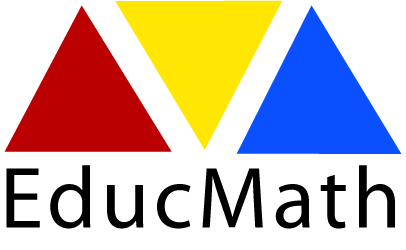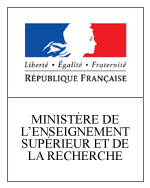Emerging Web Technologies, Facing the Future of Education
16th april 2012, 14h-17h, Lyon, France
Workshop in conjunction with www2012 conference
This workshop will be held in connection with LiLe 2012
Workshop topic and themes
The Net Generation, Y Generation, C Generation, digital natives... there are many terms – several controversial - used to name youth who were born into a world where the Internet is of great importance. These terms issue from a huge body of studies that focus on youth and digital culture (CEFRIO, 2011; Ito et al., 2008; Lenhart et al., 2008), on the emerging knowledge society (UNESCO 2005) and that illustrate a wide consensus on how new media are altering the way youth learn and socialize. They demonstrate that teachers face a new audience engaged in tagging, searching, gaming, multitasking, social networking and collaborating through Web 2.0-related activities. Indeed, youth appear more engaged in digital networks where they can create content, share knowledge and expertise, access cultural artefacts or remix existing material, realizing the Papert’s prophecy (1980).
Emerging Web technologies clearly offer new opportunities to learners but there are surprisingly few examples of such uses at school and little evidence of their impact in education. Although teachers are not entirely out of this movement as a growing number of them are engaged in online networks that foster professional development and where they share “living” teaching resources (Gueudet et al. 2011) and best practices, most schools are still focused on training autonomous problem-solvers whereas there is a growing need for creativity, teamwork and collaboration skills within multidisciplinary networks in order to solve the kind of problems faced by an increasingly complex world. Thus, there is a growing gap separating youth digital culture from mainstream academic school culture.
In line with the www2012 conference, this workshop aims at understanding the real impact of emerging Web technologies in transforming education. It will offer researchers and practicioners the opportunity to share their knowledge and expertise in putting forward new models of teaching and learning in the Internet Age. The aim is to bridge the gap between youth digital culture and school culture in order to face the new and complex challenges being addressed by educators in the knowledge society. The workshop will be complementary to LiLe 2012.
Papers focusing on concrete applications of emerging Web technologies are particularly welcome, as well as more theoretical and position position papers with a special focus on introducing social media in education.
Program
14h Welcome and opening addresses : Vladan Devedzic, Denis Gillet, Eric Sanchez Room Bellecour1
14h15-15h45 2 Parallel sessions of presentations
|
Session 1, chair : Denis Gillet Room Bellecour1 |
Session 2, chair : Valérie Emin Room Bellecour2 |
|
Jean-Marie Gilliot, Serge Garlatti, Issam Rebai and Cuong Pham Nguyen. |
Dinesh Pothineni, Pratik Mishra and Aadil Rasheed |
|
Yogesh Deshpande |
Katerina Avramides, Brock Craft and Rosemary Luckin |
|
Samuel Abramovich and Christian Schunn. |
Benjamin Wassermann, Adrian Hardt and Gottfried Zimmermann. |
16h - 17h General Panel Discussion : Emerging Web Technologies, which Future for Education? Room Bellecour1
Georges-Louis Baron, Monique Grandbastien, Michael Power (on line), chair : Eric Sanchez
Chairs
- Vladan Devedzic, FOS - School of Business Administration, University of Belgrade, Serbia
Vladan Devedzic is a Professor of Computer Science with the Department of Software Engineering, FON - School of Business Administration, University of Belgrade. His current professional and research interests include knowledge modeling, software engineering, and application of artificial intelligence to education. He is a member of the International Society for Artificial Intelligence in Education (AIED). So far, he has published about 320 research papers, both at prestigeous research journals and at international conferences, and 3 monographs for Springer. He has organized and chaired one workshop at an international conference himself (Workshop on Intelligence and Technology in Educational Applications, ITEA 2002, Innsbruck, Austria, February 2002), ad has been a program co-chair at three other international conferences/workshops (International Conference on Intelligent Tutoring Systems, ITS 2004 (30 August-03 September 2004, Maceió-Alagoas, Brazil), Workshop on Applications of Semantic Web Technologies for Web-based ITS, SW-EL'04: Semantic Web for E-Learning, August 30, 2004; Intelligence and Technology in Educational Applications 2004, Special Session at the Eighth International Conference on Knowledge-Based Intelligent Information & Engineering Systems (KES2004), Wellington, New Zealand, September 2004; 3rd IEEE International Conference on Advanced Learning Technologies (ICALT 2003), Athens, Greece, July 9-11, 2003).
Publications: http://devedzic.fon.rs/Publications.html- Denis Gillet, Ecole Polytechnique Fédérale de Lausanne, Switzerland
Denis Gillet leads the React interdisciplinary research Group at the Swiss Federal Institute of Technology in Lausanne (EPFL). His research interests include Technologies Enhanced Learning (TEL), Human-Computer Interaction (HCI), Engineering Education, as well as Coordination of Distributed Systems. His current research focus is on personal learning environments and contextual recommender systems, with applications to on-line engineering education and knowledge management. Dr. Gillet is an Executive of the STELLAR European Network of Excellence on Technology Enhanced Learning. He has also a leading position in the ROLE European Integrated Project on Responsive Open Learning Environments. Dr. Gillet is Associate Editor of the IEEE Transactions on Learning Technoloigies (TLT) and of the International Journal of Technology Enhanced Learning. He was Programme Chair of the last European Conference on Technology Enhanced Learning (EC-TEL'11).
Publications: http://people.epfl.ch/Denis.Gillet- Eric Sanchez, EducTice-S2HEP, Institut français de l'Education, Ecole Normale Supérieure de Lyon, France
He has published many papers in research journals and international conferences and has been involved in many conference program and organization committees (IIGWE 2011 Monbasa,Kenya, EIAH 2011, Mons, Belgium, ESERA 2011, Lyon, Serious Game Worshop ACFAS 2011 for the last year)
Publications: http://comenius.blogspirit.com/communications-et-publications/
Program committee
- Christophe Batier, Université Lyon 1, France
- Eric Bruillard, STEF, ENS de Cachan, IFé, France
- Peter Brusilovsky, School of Information Sciences, University of Pittsburgh, USA
- Carlos Delgado Kloos, Universidad Carlos III de Madrid, Spain
- Erik Duval, Katholieke Universiteit Leuven (Belgium)
- Valérie Emin, EducTice-S2HEP, IFE (ENSL), France
- Jean Gabin Ntebutse, Université de Sherbrooke, Qc, Canada
- Monique Grandbastien, Université Henri Poincaré Nancy1, France
- Jelena Jovanovic, FOS - University of Belgrade, Serbia
- Elise Lavoué, Université Jean Moulin Lyon 3, France
- Agathe Merceron, Beuth University of Applied Sciences Berlin, Germany
- Christine Michel, INSA-Lyon, France
- Michael Power, Université Laval à Québec, Qc, Canada
- Milan Stankovic, hypios.com & Universite Paris-Sorbonne IV, Paris, France.
- Luc Trouche, EducTice-S2HEP, IFE (ENSL), France
- Steeve Wheeler, University of Plymouth, UK
- Martin Wolpers, Fraunhofer-Institut für Angewandte Informationstechnik FIT, Sankt Augustin, Germany
References
CEFRIO. (2011). Les "C" en tant que citoyens. Génération C, 1(1).
Gueudet, G., Pepin, B., & Trouche, L. (eds.) (2011). From Textbooks
to ‘Lived’ Resources: Mathematics Curriculum Materials and Teacher
Documentation, New York, Springer.
Ito, M., Horst, H., Bittanti, M., Boyd, D., Herr-Stephenson, B., Lange,
P., & Robinson, L. (2008). Living and Learning with New Media:
Summary of Findings from the Digital Youth Project. Chicago: MacArthur
Foundation.
Lenhart, A., Kahne, J., Middaugh, E., Rankin Macgill, A., Evans, C.,
& Vitak, J. (2008). Teens, Video Games and Civics Pew Internet and
American Life Project. Washington, DC: Pew Research Center.
Papert, S. (1980). Mindstorms: Children, computers, and powerful ideas. NY: Basic Books.
UNESCO (2005). Towards knowledge societies (UNESCO World Report). Retrieved March, 26th, 2012, from http://www.unesco.org/en/worldreport









